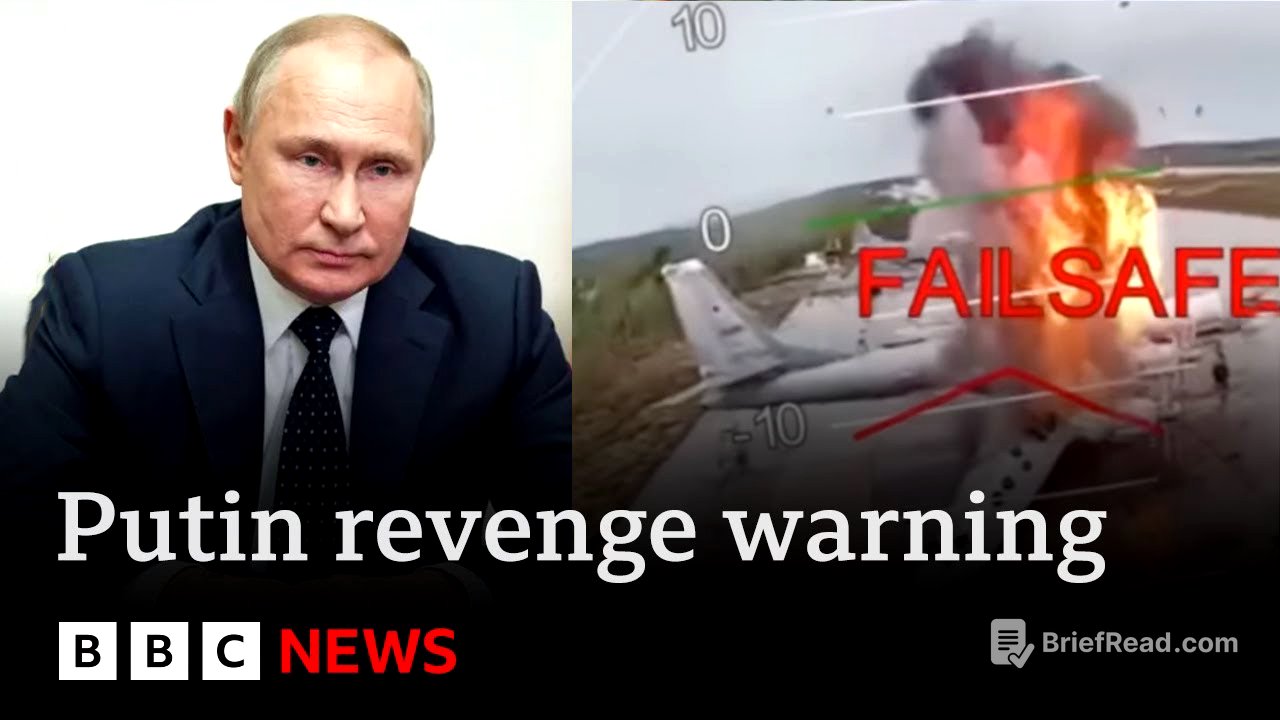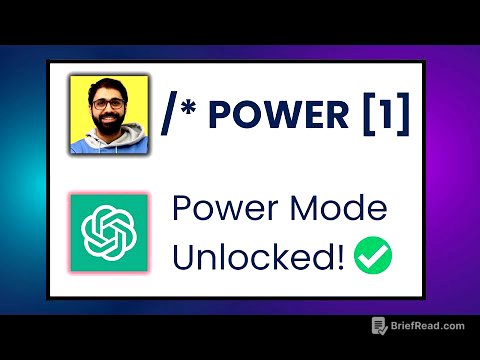TLDR;
This video discusses the aftermath of Ukraine's drone strikes on Russian air bases and the reactions from Vladimir Putin and Donald Trump. Putin has promised revenge for the attacks, while Trump expresses a pessimistic outlook on achieving peace. Zelenskyy criticizes those hesitant to increase pressure on Russia. The possibility of a ceasefire remains elusive, and the potential end of military and financial aid to Ukraine looms.
- Ukraine's drone strikes damaged or destroyed Russian planes.
- Putin is angered by the attacks and vows to retaliate.
- Trump acknowledges that peace is not imminent.
- Zelenskyy criticizes those who are not increasing pressure on Russia.
- A ceasefire remains unlikely.
Ukraine's Drone Strikes on Russian Air Bases [0:00]
Ukraine conducted drone strikes on Russian air bases, resulting in the destruction or damage of multiple planes. The operation, referred to as "Operation Spider's Weapon," targeted even Russia's prized early warning and control aircraft. Containers were used to transport the drones to airfields deep inside Russia. President Zelenskyy awarded medals to officers involved in the operation, emphasizing that it could have been avoided with a ceasefire.
Putin's Response and Stalled Ceasefire Negotiations [1:48]
Putin is angered by the drone strikes and dismisses the possibility of a ceasefire or negotiations with Ukraine, referring to them as terrorists. He believes that pausing the fighting would only encourage them. This stance complicates Donald Trump's efforts to mediate an end to the war. Trump acknowledges that his conversation with Putin did not lead to immediate peace, and Putin strongly stated that he will respond to the attacks on the airfields. Despite the tensions, a large prisoner swap is expected to occur soon.
Trump's Diminished Optimism and Zelenskyy's Criticism [2:58]
Trump's optimism regarding peace has decreased after speaking with Putin. Zelenskyy is critical of those who hesitate to increase pressure on Russia, accusing Putin of giving them "the middle finger." He argues that powerful nations share responsibility if they fail to stop Putin. Trump has a "red line" beyond which he will withdraw from the situation, and the potential end of military and financial aid to Ukraine could have serious consequences for their ability to continue the war.



![[자막뉴스] 끝내 종지부?...'일어서는 사자'로 본인이 일어선 네타냐후 / YTN](https://wm-img.halpindev.com/p-briefread_c-10_b-10/urlb/aHR0cDovL2ltZy55b3V0dWJlLmNvbS92aS9yWm82UlF4Szg0SS9ocWRlZmF1bHQuanBn.jpg)





